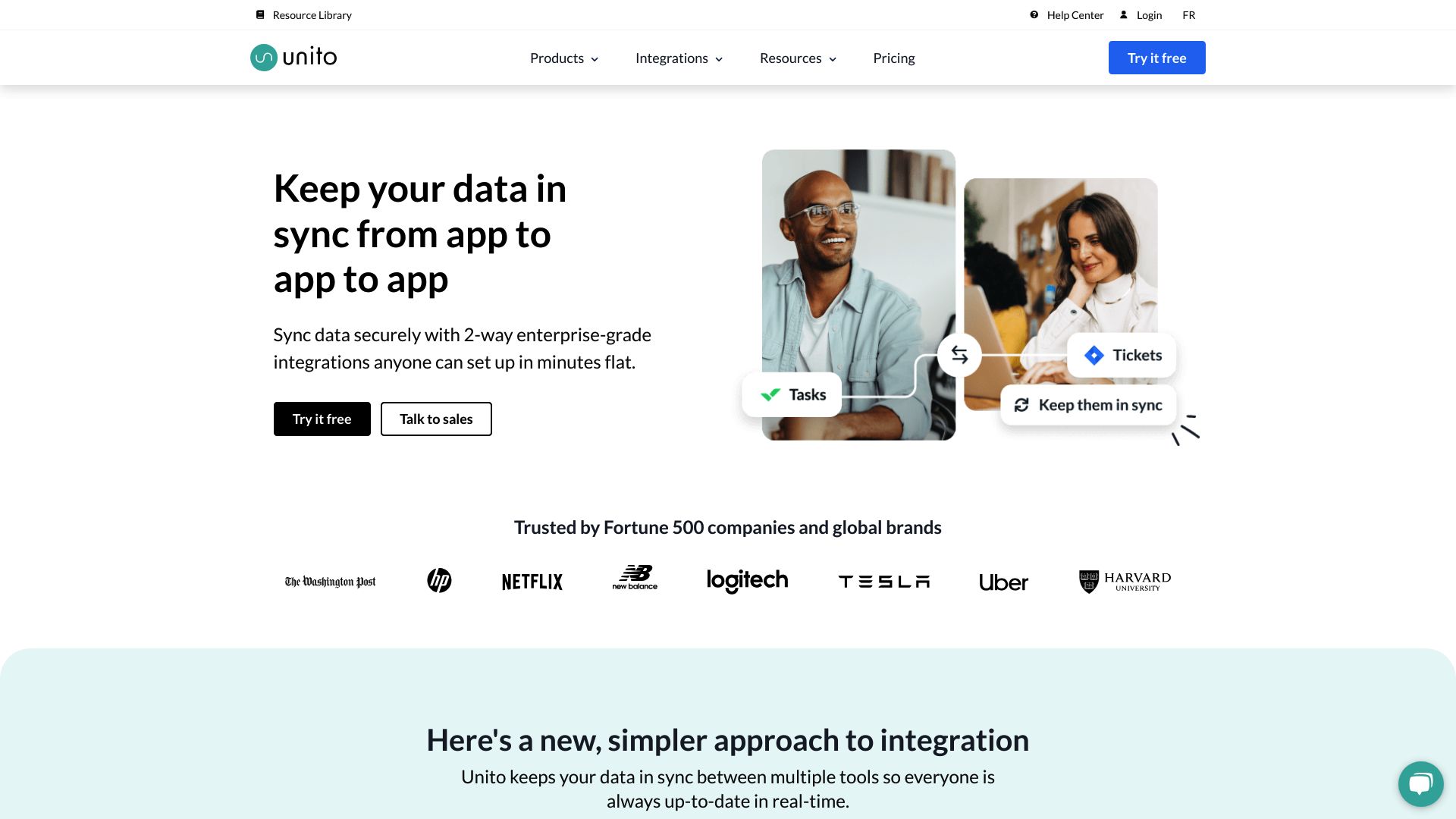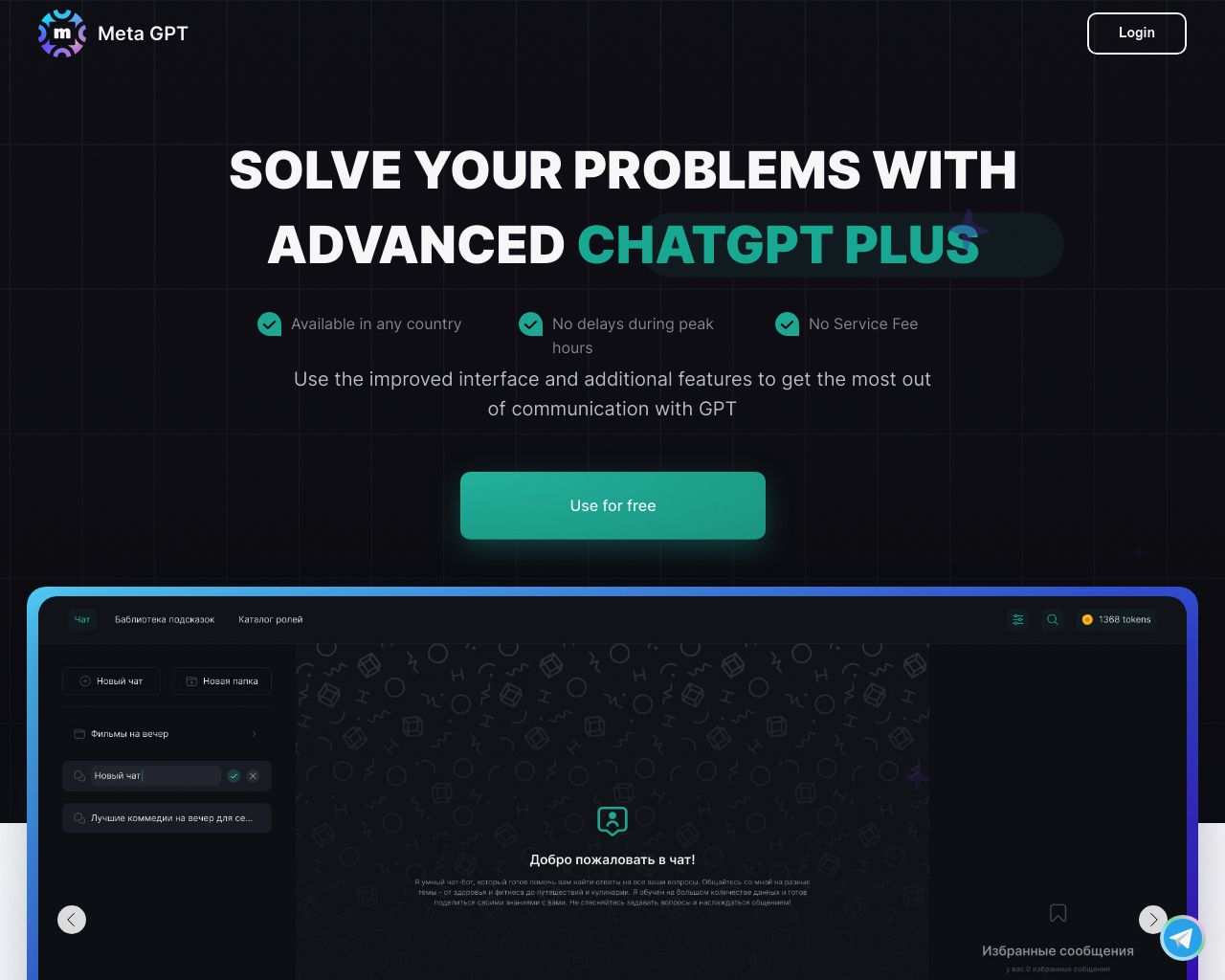Unito vs. MetaGPT: Comparing Workflow and AI Development Tools
AI platforms revolutionize how businesses operate, collaborate, and innovate. This review compares three distinct solutions: Unito’s workflow integration platform, MetaGPT’s AI-driven software development framework, and SmythOS’s comprehensive AI agent builder. We examine each platform’s unique features, strengths, and potential limitations to help you determine the best fit for your organization’s needs. Whether you’re a developer seeking powerful APIs, a business leader focused on scalability, or a non-technical user looking for intuitive tools, this comparison provides valuable insights into how these platforms can enhance your productivity and drive innovation.
Unito Overview
Unito offers a powerful integration platform designed to streamline workflows across diverse tools and teams. The Unito Sync Platform enables seamless real-time data synchronization between popular project management, collaboration, and development tools.


Unito’s visual workflow designer empowers users to create custom integrations without coding. The platform supports deep field mapping, allowing precise control over data syncing between tools. This flexibility enables teams to maintain their preferred workflows while eliminating data silos and reducing context switching.
Unito’s visual workflow designer empowers users to create custom integrations without coding… enabling teams to maintain their preferred workflows while eliminating data silos and reducing context switching.
Key features include two-way real-time sync, historical data integration, and enterprise-grade security with SOC II Type 2 certification. Unito also offers attachment streaming and comment syncing to enhance collaboration across tools. The platform’s no-code approach and self-serve setup make it accessible to both technical and non-technical users.
While Unito excels at tool integration and workflow automation, it lacks some advanced AI capabilities found in dedicated agent builders. The platform doesn’t offer hosted AI agents, autonomous decision-making, or natural language processing features. However, its strong focus on practical workflow solutions and extensive tool integrations make it a valuable asset for teams looking to optimize their existing processes and tool ecosystems.
MetaGPT Overview
MetaGPT revolutionizes multi-agent collaboration in AI by combining human Standardized Operating Procedures (SOPs) with advanced Large Language Models (LLMs). This open-source framework simulates a software company’s structure, assigning distinct roles like product managers, architects, and engineers to AI agents for efficient collaboration on complex tasks.


MetaGPT’s core philosophy, “Code = SOP(Team),” integrates established human practices into AI-driven processes. This approach significantly reduces errors common in multi-agent systems, such as cascading hallucinations or logic inconsistencies. The platform breaks down tasks into manageable subtasks handled by specialized agents, ensuring each contributes its expertise to the overall project.
MetaGPT revolutionizes multi-agent collaboration in AI by combining human Standardized Operating Procedures (SOPs) with advanced Large Language Models (LLMs).
A standout feature of MetaGPT is its comprehensive documentation generation. Throughout the development process, it produces requirement documents, design artifacts, flowcharts, and interface specifications. These intermediate outputs enhance the final code’s success rate and facilitate better human-AI interaction.
However, MetaGPT lacks some features found in more comprehensive AI development platforms. It doesn’t offer hosted agents for development or production environments, and there’s no mention of specific debugging tools or autonomous agent capabilities. The platform also appears to focus primarily on software development tasks, potentially limiting its application in other domains.
MetaGPT’s vision aims to establish a new standard in AI and multi-agent collaboration by leveraging human-like SOPs and structured communication protocols. While it excels in mimicking software company processes, users seeking a more versatile AI agent builder with features like visual interfaces or no-code options might find MetaGPT’s offerings somewhat specialized.
Feature Comparison
Unito and MetaGPT offer distinct approaches to workflow automation and AI development. Unito excels in real-time data synchronization across various tools, while MetaGPT focuses on simulating human-like collaboration in software development.
Unito’s visual workflow designer enables users to create custom integrations without coding, supporting deep field mapping and two-way real-time sync. This platform shines in practical workflow solutions and extensive tool integrations, making it ideal for teams looking to optimize existing processes.
MetaGPT, on the other hand, leverages Large Language Models to simulate a software company structure, assigning roles like product managers and engineers to AI agents. While it produces comprehensive documentation throughout the development process, MetaGPT lacks hosted agents for development or production environments and specific debugging tools. Its specialized focus on software development tasks may limit its application in other domains compared to more versatile platforms like SmythOS.
Feature Comparison Table
| Unito | MetaGPT | SmythOS | |
|---|---|---|---|
| CORE FEATURES | |||
| Visual Builder | ✅ | ❌ | ✅ |
| No-Code Options | ✅ | ❌ | ✅ |
| Autonomous Agents | ❌ | ✅ | ✅ |
| Multimodal | ❌ | ✅ | ✅ |
| Human-AI Interaction | ❌ | ✅ | ✅ |
| Agent Work Scheduler | ❌ | ✅ | ✅ |
| SECURITY | |||
| IP Control | ❌ | ❌ | ✅ |
| COMPONENTS | |||
| Foundation AIs | ❌ | ✅ | ✅ |
| Huggingface AIs | ❌ | ✅ | ✅ |
| Classifiers | ❌ | ✅ | ✅ |
| Logic | ✅ | ✅ | |
| Data Lakes | ❌ | ❌ | ✅ |
| DEPLOYMENT OPTIONS (EMBODIMENTS) | |||
| Deploy as Webhook | ❌ | ✅ | ✅ |
| Staging Domains | ❌ | ❌ | ✅ |
| Deploy as Site Chat | ❌ | ✅ | ✅ |
| Deploy as Scheduled Agent | ❌ | ✅ | ✅ |
| Deploy as GPT | ❌ | ✅ | ✅ |
| DATA LAKE SUPPORT | |||
| Hosted Vector Database | ❌ | ❌ | ✅ |
| Sitemap Crawler | ❌ | ❌ | ✅ |
| YouTube Transcript Crawler | ❌ | ❌ | ✅ |
| URL Crawler | ❌ | ✅ | ✅ |
| PDF Support | ❌ | ✅ | ✅ |
| Word File Support | ❌ | ✅ | ✅ |
| TXT File Support | ❌ | ✅ | ✅ |
Best Alternative to Unito and MetaGPT
SmythOS emerges as the superior alternative to Unito and MetaGPT, offering a comprehensive platform for AI agent development and deployment. Our solution combines the best of both worlds: Unito’s focus on workflow integration and MetaGPT’s AI-driven approach, while adding powerful features that set it apart.
We provide a user-friendly visual builder that surpasses Unito’s workflow designer, allowing users to create complex AI agents without coding expertise. Unlike MetaGPT’s specialized focus on software development, SmythOS offers unlimited use cases across industries, from customer service to data analysis and beyond.
SmythOS emerges as the superior alternative to Unito and MetaGPT, offering a comprehensive platform for AI agent development and deployment.
Our platform boasts a rich feature set that outshines both competitors. We support multimodal interactions, enabling AI agents to process and respond to various data types, including text, images, and audio. This versatility opens up a world of possibilities for businesses looking to implement AI solutions across different channels and formats.
SmythOS excels in ease of use, offering no-code options that empower non-technical users to harness the power of AI. We provide pre-built templates and integrations, making it simple to get started quickly while still offering the flexibility for advanced customization. This approach democratizes AI development, allowing businesses of all sizes to benefit from cutting-edge technology.
Unlike Unito and MetaGPT, we offer a complete ecosystem for AI agent development, deployment, and management. Our platform includes features such as hosted agents for both development and production environments, debug tools for troubleshooting, and robust security measures to protect sensitive data. With SmythOS, businesses can confidently scale their AI initiatives, knowing they have a reliable and secure foundation to build upon.
Conclusion
Unito, MetaGPT, and SmythOS each offer unique approaches to workflow automation and AI development. Unito excels in real-time data synchronization across various tools, while MetaGPT focuses on simulating human-like collaboration in software development. Both platforms have their strengths, but SmythOS emerges as the most versatile and powerful solution for AI agent creation and deployment.
SmythOS stands out with its intuitive drag-and-drop interface, extensive integration ecosystem, and support for multiple AI models. Unlike Unito and MetaGPT, SmythOS offers a comprehensive suite of features including hosted agents, visual building tools, autonomous agent capabilities, and flexible deployment options. This makes it suitable for a wide range of users, from developers and IT managers to non-technical professionals and industry-specific teams.
While Unito and MetaGPT may be suitable for specific use cases, SmythOS provides a more holistic approach to AI implementation. Its ability to create once and deploy anywhere, coupled with features like multimodal support, problem-solving capabilities, and human-AI interaction, positions SmythOS as the superior choice for businesses looking to harness the full potential of AI.
To experience the power and versatility of SmythOS firsthand, create a free account and start building AI agents today. With unlimited agents available in the free plan and a 30-day money-back guarantee, you can explore SmythOS’s capabilities risk-free. Discover our diverse range of AI-powered agent templates to jumpstart your journey into the future of AI-driven workflow automation.
Last updated:
Disclaimer: The information presented in this article is for general informational purposes only and is provided as is. While we strive to keep the content up-to-date and accurate, we make no representations or warranties of any kind, express or implied, about the completeness, accuracy, reliability, suitability, or availability of the information contained in this article.
Any reliance you place on such information is strictly at your own risk. We reserve the right to make additions, deletions, or modifications to the contents of this article at any time without prior notice.
In no event will we be liable for any loss or damage including without limitation, indirect or consequential loss or damage, or any loss or damage whatsoever arising from loss of data, profits, or any other loss not specified herein arising out of, or in connection with, the use of this article.
Despite our best efforts, this article may contain oversights, errors, or omissions. If you notice any inaccuracies or have concerns about the content, please report them through our content feedback form. Your input helps us maintain the quality and reliability of our information.
